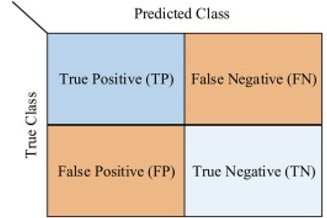A Hyper-parameter Tuning based Novel Model for Prediction of Software Maintainability
Main Article Content
Abstract
Software maintainability is regarded as one of the most important characteristics of any software system. In today's digital world, the expanding significance of software maintenance is motivating the development of efficient software maintainability prediction (SMP) models using statistical and machine learning methods. This study proposes a hyper-parameter optimizable Software Maintainability Prediction (HPOSMP) model using the hybridized approach of data balancing and hyper-parameter optimization of Machine Learning (ML) approach using software maintainability datasets. The training dataset has been created with object-oriented software namely UIMS and QUES. To balance the dataset, Synthetic Minority Oversampling Technique (SMOTE) technology has been adopted. Further, Decision Tree, Gaussian Naïve Bayes, K-Nearest neighbour, Logistic Regression, and Support Vector Machine are adopted as Machine Learning and Statistical Regression Techniques for training of software maintainability dataset. Results demonstrate that the proposed HPOSMP model gives better performance as compared to the base SMP models.
Article Details
References
G. Issac, C. Rajendran, and R. N. Anantharaman, “Determinants of software quality: customer’s perspective,” Total Qual. Manag. Bus. Excell., vol. 14, no. 9, pp. 1053–1070, 2003.
S.-H. Li, D. C. Yen, W.-H. Lu, T.-Y. Chen, “The characteristics of information system maintenance: an empirical analysis,” Total Qual. Manag. Bus. Excell., vol. 25, no. 3–4, pp. 280–295, 2014.
“IEEE Standard for Software Maintenance,” IEEE Std 1219-1993, 1993.
D. Houston, J. Bert Keats, “Cost of software quality: a means of promoting software process improvement,” Qual. Eng., vol. 10, no. 3, pp. 563–573, 1998.
A. Kaur, K. Kaur, “Statistical comparison of modelling methods for software maintainability prediction,” Int. J. Softw. Eng. Knowl. Eng., vol. 23, no. 6, pp. 743–774, 2013.
R. Malhotra, A. Chug, “Application of evolutionary algorithms for software maintainability prediction using object-oriented met- rics,” in Proceedings of the 8th International Conference on Bioinspired Information and Communications Technologies, 2014, pp. 348–351.
R. Malhotra, A. Chug, “Software Maintainability Prediction us- ing Machine Learning Algorithms,” Softw. Eng. an Int. J., vol. 2, no. 2, pp. 19–36, 2012.
R.E. Shawi, M. Maher, S. Sakr, “Automated machine learning: State-of-the-art and open challenges”, arXiv preprint arXiv:1906.02287, (2019). http://arxiv. org/abs/1906.02287.
M. Kuhn, K. Johnson, “Applied Predictive Modeling”, Springer, 2013, ISBN: 9781461468493.
G.I. Diaz, A. Fokoue-Nkoutche, G. Nannicini, H. Samulowitz, “An effective algorithm for hyperparameter optimization of neural networks”, IBM J. Res. Dev. Vol. 61 pp. 1–20, 2017. https://doi.org/10.1147/JRD.2017.2709578.
Zhang, W., Huang, L., Ng, V., Ge, J., “SMPLearner: learning to predict software maintainability”, Automated Software Engineering, vol. 22, pp. 111-14, 2015..
Kumar, L., Krishna, A., Rath, S. K., “The impact of feature selection on maintainability prediction of service-oriented applications”, Service Oriented Computing and Applications, vol. 11, pp. 137-161, 2017.
Malhotra, R., & Khanna, M., “An exploratory study for software change prediction in object-oriented systems using hybridized techniques”. Automated Software Engineering, vol. 24, pp. 673-717, 2017.
Reddy, B. R., Ojha, A., “Performance of Maintainability Index prediction models: a feature selection based study”, Evolving Systems, vol. 10(2), pp. 179-204, 2019.
Malhotra, R., Lata, K., “An empirical study to investigate the impact of data resampling techniques on the performance of class maintainability prediction models”, Neurocomputing, vol. 459, pp. 432-453, 2021.
Gupta, S., Chug, A., “Software maintainability prediction of open source datasets using least squares support vector machine”,. Journal of Statistics and Management Systems, vol. 23(6), pp. 1011-1021, 2020.
Gupta, S., Chug, A., “Software maintainability prediction using an enhanced random forest algorithm”, Journal of Discrete Mathematical Sciences and Cryptography, vol. 23(2), pp. 441-449, 2020.
Agrawal, X. Yang, R. Agrawal, R. Yedida, X. Shen, , and T. Menzies, “Simpler hyperparameter optimization for software analytics: why, how, when”, IEEE Transactions on Software Engineering, vol. 48, pp. 2939 - 2954, Apr 2021.
L. Shen, W. Liu, X. Chen, Q. Gu, and X. Liu, “Improving machine learning-based code smell detection via hyper-parameter optimization,” In 2020 27th Asia-Pacific Software Engineering Conference (APSEC),IEEE, Dec 2020, pp. 276-285, doi: 10.1109/APSEC51365.2020.00036.
E. Sara, C. Laila, I. Ali, “The Impact of SMOTE and Grid Search on Maintainability Prediction Models,” In 2019 IEEE/ACS 16th International Conference on Computer Systems and Applications (AICCSA), IEEE, Nov 2019, pp. 1-8, doi: 10.1109/AICCSA47632.2019.9035342.
Li, W., Henry, S., “Object-oriented metrics that predict maintainability”, Journal of systems and software, vol. 23(2), pp. 111-122, 1993.
Chidamber, S. R., Kemerer, C. F., ”A metrics suite for object oriented design”, IEEE Transactions on software engineering, vol. 20(6), pp. 476-493, 1994.
Malhotra, R., Lata, K., “An empirical study on predictability of software maintainability using imbalanced data”, Software Quality Journal, vol. 28, pp. 1581-1614, 2020.
Alsolai, H., Roper, M., “A systematic literature review of machine learning techniques for software maintainability prediction.”, Information and Software Technology, vol. 119, pp. 106214, 2020.
Feurer, M., Hutter, F., Hyperparameter optimization. Automated machine learning: Methods, systems, challenges, 3-33, 2019
Singh, P., Singh, N., Singh, K. K., & Singh, A., Diagnosing of disease using machine learning. In Machine learning and the internet of medical things in healthcare (pp. 89-111). Academic Press, 2021

